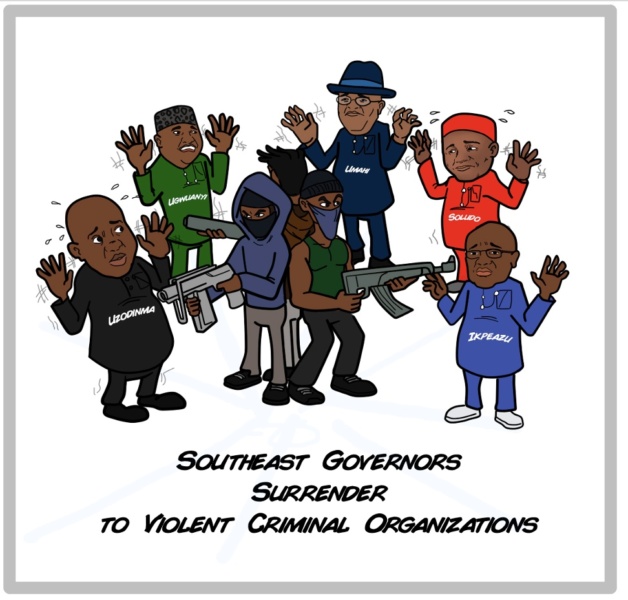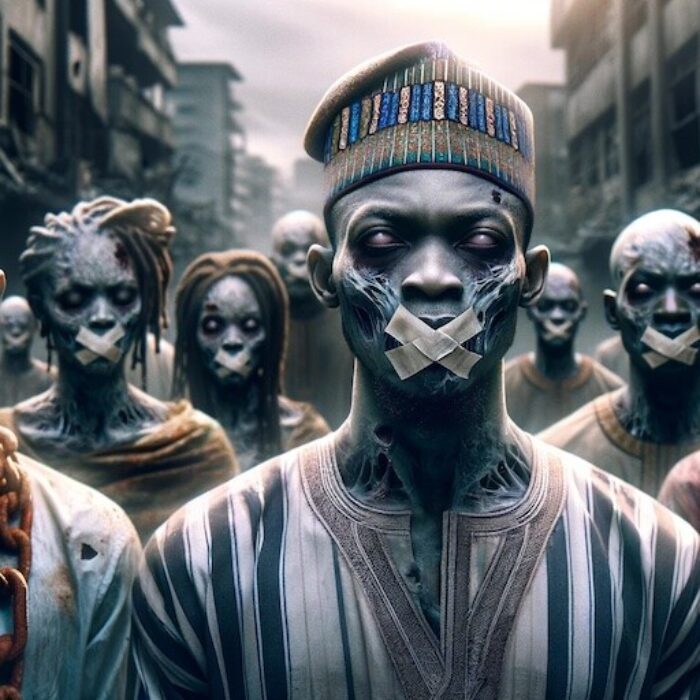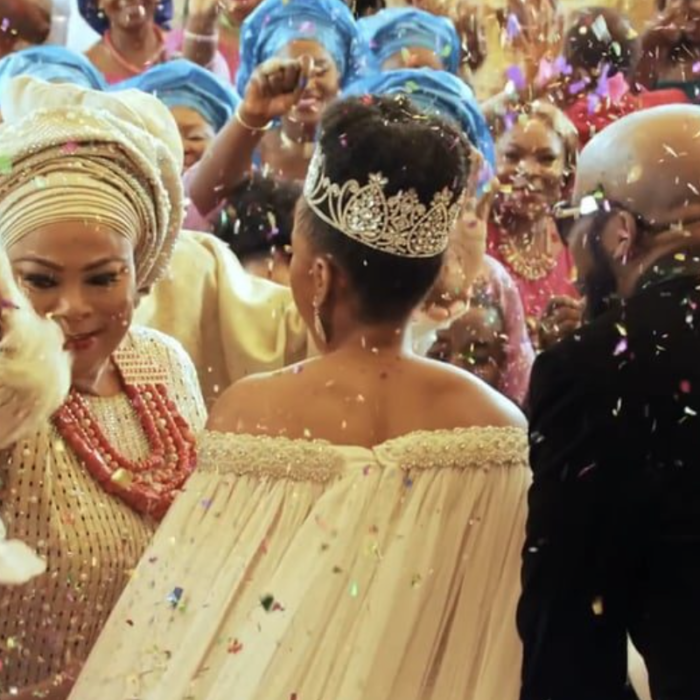By The Editorial Board
One of the greatest gifts the Igbos have given to Nigeria, and to some extent all Africa, is the concept of hope for a better future (nwee olileanya maka ọdịnihu ka mma). This Igbo philosophy of life kept the people alive during and after the Biafra war.
Despite the innumerable attempts to wipe the Igbos off the face of the earth, they have endured because they deeply believe that the better future they envision is not only plausible but inevitable.
The war taught the Igbos that they were the masters of their future and their destiny, not a people to wait for the benevolence of others, especially the government.
And the Igbos make that future possible by their relentless quest for freedom, security, new knowledge, entrepreneurial venturing, inventiveness and industriousness.
Like the mythological Phoenix, the hope for a better future motivated and energized the Igbos to rise from the ashes of defeat and devastation after the Biafra war to rebirth a new identity and rebuild and restore a state of relative prosperity, solidarity and security.
The rapid restoration of Igbo humanity after the war was made possible by a period of unity, security, stability and growth engineered by a cadre of visionary and pragmatic Igbo leaders.
Unfortunately, the legacy left by these great leaders was soon to be demolished by a new gang of inept and corrupt political neophytes who were, and still are, more interested in their own self-enrichment and self-preservation than the safety, freedom and well-being of Ndigbo.
Today the Igbo fundamental belief in a better future and secure way of life is severely threatened by an enemy often seeded, financed and protected by the same inept and corrupt politicians, their cronies and their political parties. In fact, the better future the Igbos envision is rapidly turning into a bleak future, a dystopia.
The goal of this enemy is terror, destruction and death.
If you think that the only enemy is the Fulani herdsmen or the Fulani militia or Buhari’s militarized policemen, you are mistaken. There’s a more dangerous enemy within.
This enemy is a treacherous mixture of evil people, toxic ideology and deadly practice with existential consequences for the Igbo people, if not defeated.
The evil people are Igbo violent criminals. The ideology is violent extremism. The practice is extreme violence.
To defeat the enemies outside, the Igbos must first and foremost defeat the enemies within.
Today, the prevalence and persistence of extreme violence threatens the better future the Igbos envision, including the economy, stability, security, freedom and livelihood of the Igbo people, and poses the greatest homegrown terrorism threat in the contiguous Southeast states.
In this vortex of violence, violent extremists kidnap, abduct, rob, kill, murder, rape, corrupt, traffic sex and drugs, sacrifice humans for protection, enforce illegal stay-at-home orders, disrupt supply chains of goods and services, destroy farm produce, burn down markets, demolish properties, dislocate families, intimidate people, release prisoners, and control in aggregate over 33% of territory in some Igbo states.
In addition, the economic consequences are equally devastating. Our estimate suggests about 30% reduction in aggregate state-level GDP from loss of productivity, disruptions in supply chains and destruction of perishable goods. In addition, violent criminal activities have contributed to high inflation in household items, include high cost of food and fuel.
The Igbos are almost certainly facing something far more assiduous and dangerous in Igboland. They can see the external threats of the moment, but are substantially blind to the most insidious enemy: Igbo-on-Igbo violent crime and the real and present dangers it poses to Ndigbo.
The long-term consequences, if this enemy is not defeated, are unimaginable: a dark future, dystopian life, anarchy, unfreedom, poverty, fear and mass death. The Igbos already observe some of these atrocities every day in the Southeast.
In this expansive investigative report, the Editorial Board of The African Mind warn about the growing threat of violent crimes perpetrated by Igbos on Igbos and the dire consequences of doing nothing.
We reveal (contrary to what politicians and Ohanaeze Ndigbo say) that the provenance of violent extremism in the Southeast states has its roots in the toxic intersection of party politics, political warfare and money. Accordingly, extreme violent crime in Igboland is as much a product of politics as it is of crime business.
The outcome of this unholy alliance between politicians and criminals and political parties and criminal organizations is the deadly ideology of violent extremism that has engulfed the Southeast states. Politicians and political parties use political violence as coercive tool to gain power and influence. They use it to harass or kill opponents and intimidate voters.
We know that these violent criminal organizations have long enjoyed special ties and economic arrangements at the local, state and international levels with politicians, Igbos in diasporas, and elements of the police, courts and businesses, according to our informants who asked for anonymity for fear of retribution.
Importantly, we recommend core strategic initiatives to defeat violent extremists. However, we are under no illusion that defeating the enemy will be easy. But we know that doing nothing will be worse and significantly perilous.
Enemies Within And Enemies Outside
If the Igbos don’t defeat the enemy within, they will not defeat the enemy outside. It is, therefore, crucial to prioritize the enemy within as the most consequential threat to the better future the Igbos envision.
Yet almost every story Igbo governors, political leaders and cultural elites, especially Ohanaeze Ndigbo, now tell fits into some portion of the narrative on “external enemies” and the existential threat they pose to Ndigbo.
It has been the perfect formula to distract and divert attention away from the real threats: enemies within — Igbo-on-Igbo violent criminals.
The evidence we’ve gathered suggest that the Igbos suffer from horrendous injustices and malpractices often caused by some of their own Igbo leaders and cultural elites who use and abuse the imminence of “external enemies” to manipulate gullible people while they negotiate beneficial personal and political interests with the same external enemies.
In reality, the likelihood that external threats such as the much-talked about Fulani herdsmen or Fulani militia or bad actors in the Buhari administration will exterminate the Igbos is vanishingly small, but not zero.
Let’s be clear that we’re in no way minimizing the perception or reality of the external threats.
The herdsmen are dangerous. They have clashed with Igbo communities, killed Igbo people (and the Igbos have killed some of them) and caused severe damages in Igbo communities and farmlands. And there’s no argument that the Buhari government tends to dislike the Igbos. The president has, on many occasions, expressed his disgust for the Igbos for not voting for him and for agitating against his government.
However, the inconvenient truth and the reality the Igbos must accept and face, and must do so urgently, is that very often, the hardcore, violent crimes are committed by Igbos against fellow Igbos. Igbos have a problem of the enemy within.
We know that the Fulani herdsmen did not point their AK-47s to the heads of Igbo governors and commanded them to loot state coffers and siphon off monies that should have been used to improve local roads, hospitals, markets, schools and the welfare of the Igbo people.
External enemies did not impose illegal stay-at-home mandates and carry out murderous attacks against civilians who don’t support their cause or who refuse to obey their illegal sit-at-home order. Nor can the Igbos hold the Fulani herdsmen responsible for all the organized armed robberies, systemic kidnapping and rampant killings which are endemic in Igboland today.
The Fulani herdsmen did not attack the Labour Party’s rally in Okposi in Ebonyi state. They didn’t murder Dr. Chike Akunyili, a renowned medical practitioner and Hon. Okechukwu Okoye and many others.
The Fulani herdsmen didn’t abduct Engr. Nelson Onyemeh and four of his engineers in Abakaliki, Ebony state.
The Fulani herdsmen didn’t block roads and take over whole communities and restrict free movement of people and goods. The Fulani herdsmen didn’t pillage markets, villages and towns with impunity and set markets and private properties on fire.
The Fulani herdsmen didn’t kidnap, rob and murder innocent people in Anambra hellscape, Abakaliki killing fields, Owerri, Aba and Umuahia warfronts and every day in other Igbo towns and villages. And the Fulani herdsmen didn’t systematically rape numerous Igbo women and girls as young as 10 years in Umuahia, Aba, Owerri, Akwa, Nnewi, Okposi, Enugu, to name a few.
External enemies were not hired by politicians to terrorize their opponents or release 1844 hardcore prisoners in the Correctional Centre in Owerri and other Igbo states.
If external enemies committed these atrocities, there will be outrage and every politician and cultural leader in Igboland will be up in arms calling for war against all external enemies, known and unknown.
Now that the perpetrators of these heinous crimes against the Igbos are Igbos themselves, why aren’t there mass protests and condemnations all the way to Abuja? Rather, Igbo governors offer olive branch and amnesty to these violent criminals. They blame unknown gunmen and external enemies of Ndigbo. Nonsense.
The salient questions are, why have Igbo governors surrendered? Where are Igbo national assembly members? Where are Igbo businesspeople? Where are Igbo community leaders? Where are Igbo religious leaders? And where is Ohanaeze Ndigbo? Why aren’t they working together to end these atrocities?
Instead of finding a solution, Ohanaeze criticized the Commissioner of Police in Anambra State, Mr. Echeng Echeng, when he correctly pointed out that community and political leaders were complicit by shielding the criminals from prosecution.
We agree.
Current high level of violence throughout the Southeast is inextricably linked to politicians, political parties and political competition. Violent criminal organizations are mere political appendages to political parties and politicians who fund, sponsor and recruit them for their own political benefits and often weaponize them against their opponents and voters.
Today, violent criminal organizations are corrupted and co-opted as political and commercial tools of violent criminality. They wield political power and intimidate, harass, blackmail and even kill those who refuse to abide by their criminal demands. APC, PDP and other mainstream political parties in the Southeast curry their favor and support during elections. Politicians and criminal organizations reinforce each other.
The Igbos Must Declare War Against Violent Extremism
The Igbos do themselves no favors when they ignore the root causes of the violent crimes, or when they cling to the exaggerated external threats narrative to give cover to the enemies within. This is the time to fight back, defeat the enemies and protect lives and property.
To defeat violent extremists, the Igbos must first accept the inconvenient truth that the enemy within is worse than the enemy outside. They must accept that they are their own worst enemy.
To defeat violent criminals, we make the following counter-violence recommendations:
- Integrate and coordinate counter-violence strategy across all Southeast states. The Southeast governors must develop and implement an integrated counter-violence strategy and coordination across the 5 states. A stand-alone strategy, that is, each state attempting to eradicate violent extremism on its land is suboptimal since violence has a contagion effect. It spreads from one contiguous state to another.
- Stop the big lie, tell the truth. Ndigbo should begin by questioning the biggest lie they tell themselves: that external enemies, “Igbo haters”, are an existential threat to Ndigbo. The truth is that majority of the violent crimes can easily be traced to Igbo criminal organizations. Igbos must win the war against the enemy within if they are to win the enemy outside.
- Break the Politics-Crime Chain. Until this unholy alliance between some politicians and violent criminal organizations are severed, it will be difficult, if not impossible, to win the war against violent extremism in Igboland. Only Igbo politicians, businesspeople and cultural elites can break the chain of violence.
- Publicly Identify and prosecute the “Big Daddies” who recruit, fund and protect criminal organization. For years, politicians and members of the private sector at home and in the diasporas have been financing and partnering with criminal organizations in the Southeast. Money and political protection keep the criminals alive. To find out who is financing these criminal organization, the government must follow the money.
- Build trust with local communities. The success of any counter-violence strategy will depend on building trust and legitimacy with local communities, so that the police and other law enforcement agencies are viewed as allies and not enemies.
- Deliver tangible benefits to the people. When the social contract between the state government and the residents fall apart because the state cannot meet its welfare obligations in terms of efficient and effective delivery of basic services to which the people are entitled, then the consequence of this failure is disobedience to authority and the law. This leads to lawlessness – breakdown in law and order. Igbo governors are obligated by this contract to deliver benefits to its residents.
- Mobilize the power of the people against violent criminals. People know who these bad actors are in their communities and villages. Landlords know them. Neighbors know them. Villagers know them. Turn the people against them. Turn family members against them. Turn social clubs and churches against them.
- Invest in community-based crime prevention programs. The programs will encourage and incentivize residents to share information about criminals and crime activities. For example, a whistleblower program should be implemented to reward and protect people who come forward with valuable information to deter crime.
- Disband all vigilante organizations gradually as the states regain control over violent extremists. Vigilantism is not a substitute for the law. What our investigation clearly demonstrates is that today’s state-approved vigilante organizations are the seeding grounds for criminals tomorrow. We are against vigilante programs because there can be abused and are known to be counterproductive in the long-run.
- Stop negotiating with violent extremists. You can’t negotiate with an ideology of hate and violence. Win first, negotiate later. Granting amnesty is a moral hazard and has proved to be counterproductive as it tends to incentivize more criminality.
- Get on the offensive. Take the war to them. Southeast governments have bent over backwards to placate violent extremists and ceded too much power to them. Now they must start clawing it back. So much of what passes for anti-violence policing is timidity and desperation. Now it’s all-out war.
- Fight criminals on social media. Social media is a critically important avenue in the way the Igbo public is finding out about the latest information and it’s become a space where violent criminals go to radicalize and recruit. Hire hundreds of social media creators and influencers to disseminate counter-violence information to young Igbos before they are radicalized and recruited on social media.
- Invest in youth employment. There has long existed in the Southeast a large group of deprived and angry people who believe that Igbo state governments have for long marginalized them and ignored their voices and suffering. This is the group that are easily influenced and recruited by criminal organizations to join them. When the youth are unemployed and demoralized, they are susceptible to taking money and supplies to join violent criminal organizations.
- Engage the youth in something meaningful — something hopeful, something that leads to a means of livelihood. Job training, organized apprenticeship, and job placement. Experiment with a model Youth Service Program for Secondary School graduates who don’t want to further their education. Pay a stipend and engage them to work on government projects, for companies and civil society organizations in the state.
- Invest in moral education. Violent extremism reflects the general breakdown of morality and moral laws — when people have lost all respect for the sanctity of life and private property. Early intervention in primary and secondary schools will plant the seed for proper ethical decision making later in life.
To conclude, the Igbo people have a chance, and indeed, deserve to reap the benefits of a better future. That will only happen if Igbo political, business and cultural leaders are committed and determined to win the war against violent extremists within. We urge the Southeast governors, politicians and the public to work together to implement the 15-point strategic initiatives we recommended. We will follow up in 2023 and beyond with a detailed performance evaluation for each state governor, assessing the progress they have made against violent criminal organizations and crime rate in their states.




